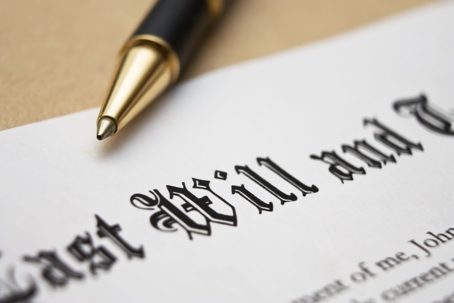After weeks of compiling personal and financial information, deciding on guardians for minor children, choosing trustees to manage your funds, designating beneficiaries and distribution arrangements, and coordinating your investments and income sources to maximize your retirement, you completed the daunting task of establishing an estate plan. The decisions were tough and involved subjects that you and your family often avoid discussing. Most of us are reluctant, at best, to address the realities of end of life decisions; once we have addressed them, many of us are so relieved that we safely store our estate planning documents, never to be reviewed or reconsidered. Unfortunately, as your life changes, so should your estate plan.
One of our staff members recently experienced first-hand the importance of having an up-to-date trust. Her in-laws – originally from Virginia – established an estate plan in 1998 and filed it away. In 2014, her father-in-law was 89 and he and his wife made the decision to move to California to be closer to family. Of course, with a move of this magnitude there were many things that needed to be updated and changed. Their first priority was to update identification documents, billing addresses, bank accounts and medical coverage. Fortunately, they also knew they would have to update their Virginia trust, and they took the time to do so. Thankfully they did this, because not long afterward her father-in-law passed away. Having an up-to-date trust was one of the best gifts her father-in-law could have given them, as it created clarity and ease during an emotional time.
Although you may not have moved across the country, there are several other life events that may require an update to your trust, wills, and overall estate plan. Any time one of the following life events occurs, we recommend reviewing your estate plan and considering whether updates are appropriate:
• Change in marital status
• Change in financial status
• Major change in employment
• Birth of a new heir
• Death of an heir
• Changes to the tax code
• Real estate purchases or sales
Even if none of these events have occurred, a general “rule of thumb” is to review your estate planning documents at least every five years. How long has it been since you reviewed and updated your estate plan? If updates are in order, don’t wait to make them a New Year’s Resolution – call us today ((916) 237-8781) and schedule a review of your documents with one our estate planning attorneys.
The post What do I do with my Estate Plan? appeared first on Huber Fox, P.C..

